The Volkswagen Golf turns 50 years old today, the Mk1 having entered production on 29 March 1974.
Since then, the company has made more than 37 million examples of the Golf, which means it's the third best-selling car of all time.
It has existed in a multitude of different forms, ranging from the original hatchback to a drop-top and the Jetta saloon variant.
The first-generation Golf, designed by Giorgetto Giugiaro, landed in the UK in October 1974. It was met with critical acclaim, with Autocar’s January 1975 road test stating that “there is no comparison between the Golf and the Beetle”.
We went on: “The Golf is quicker, roomier, more stable, better-handling and more economical.” It wasn’t perfect, though. Testers noted that it had a questionable driving position, poor brake feel under high loads and a harsh ride.
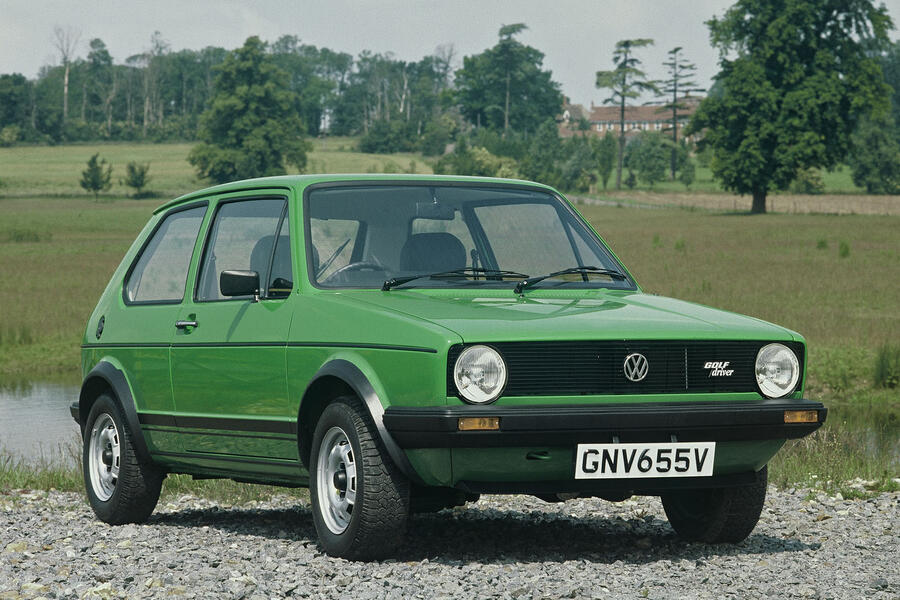
Nonetheless, our summary was positive: “The Golf is certainly a very strong contender in its class: it would be more so at a more modest price, but even so Volkswagen (GB) are clearly right in anticipating that it will increase their market share in 1975 and become their biggest seller.”
And so it proved, as it took only two and a half years for VW to produce its millionth Golf, hitting the milestone in October 1976.
That same year, the now-revered GTI joined the line-up. Its 1.6-litre powerplant swapped carburation for mechanical fuel injection, bumping power to 108bhp. Chassis changes included the fitment of stiff anti-roll bars, Bilstein dampers and a 20mm drop in ride height. Wheel-arch extensions, a red stripe around the grille and – initially, at least – a choice of either red or metallic silver paint completed the package.
![]()
Our first impressions were that the power “meant that one had to be sensible with the throttle” and we found the handling to be “most impressive”.
Although it was not the first hot hatch – the Simca 1100ti is often credited with that title – the GTI did popularise the format. In 1982, a car meet for GTI owners convened for the first time at Wörthersee lake in Austria. In the years thereafter, Wörthersee came to represent Mecca for the GTI cult, with the meet gaining official VW sponsorship in 2006. This year’s edition will be hosted in Wolfsburg, however, after officials in Wörthersee prevented last year’s gathering on environmental grounds.
As for the cooking Golf, a diesel engine joined the line-up in 1976, and drop-top and saloon bodies (the latter named Jetta) were added three years later. Curiously, Mk1 Golf production ended only in 2009, owing to its popularity in South Africa.
A second-generation car arrived in 1983, prioritising efficiency and interior space with a larger, curvier body. Autocar's testers preferred the contemporary Vauxhall Astra for its combination of ride, handling and practicality, but noted that the Golf ran it a close second.

The GTI gained a 1.8-litre 16-valve engine in 1986 that boosted power to 139bhp and outgunned several turbocharged rivals. A supercharged G60 model arrived four years later, kicking out 160bhp, but it wasn’t offered in right-hand drive – a decision we called “entirely unjustifiable”.
In addition to hotter GTIs, the Mk2 Golf spawned a variety of niche special editions, including the Country, a 4x4 conversion by Austria’s Steyr-Puch involving a 120mm lift in ride height, the fitment of bull bars and chassis reinforcements, and flashy mountain-motif graphics.
![]()
There was also the Golf G60 Limited, a spiritual ancestor of today’s Golf R. A 71-car special-edition made by VW Motorsport, it packed 40bhp more than the regular G60 and sent it through all four wheels. Visually, though, it was identical to a regular Golf GTI, marked out only by its blue grille surround and graphite-grey paint.
The third-generation Golf came in 1991, adding a V6 engine – the narrow-angle VR6 – and an estate variant. The VR6 was notable for bringing the hot hatch into contention with premium executive cars, beating the BMW 325i in a November 1991 test.

Volkswagen followed this thread with the fourth Golf, launched in 1997. It majored on quality and refinement, with a better interior than that of premium sibling Audi’s A3. Great qualities for the cooking versions, but the GTI was something of a letdown dynamically, with a duller turn-in and vaguer steering than its predecessors.
The introduction of the Golf R32 – the first R-badged model – in 2002 rectified matters somewhat. It paired an upgraded 3.2-litre VR6 with four-wheel drive, offering sensational performance in all conditions. Stiffer, lower suspension and a wide-body kit gave it a mean look befitting of a bona fide performance car too – something the Mk3 VR6 lacked.
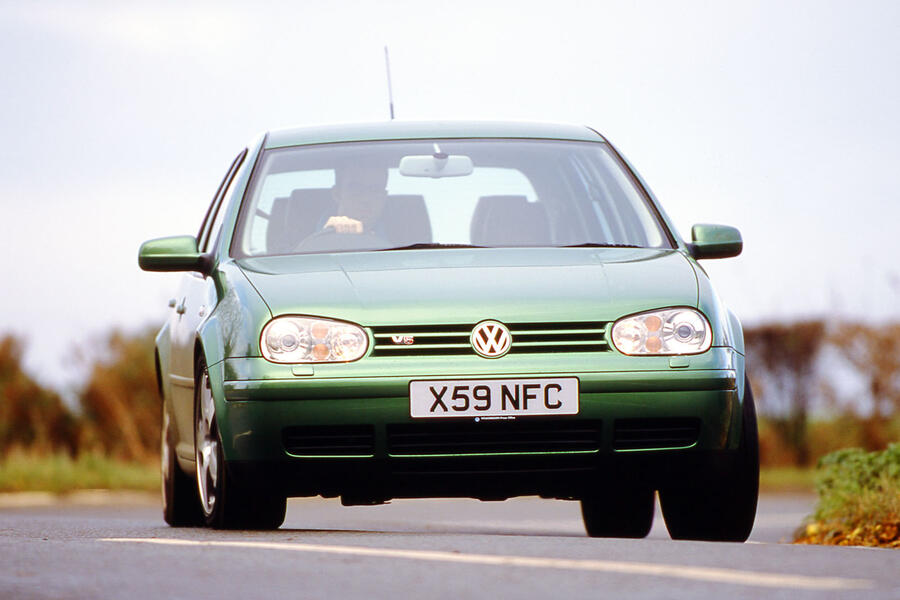
The fifth Golf came in 2004 and, thanks to a suspension set-up inspired by the Ford Focus, it returned the dynamic spice that had been lacking from the Mk3 and Mk4 Golfs. That made for one of the best GTIs of the lot, melding the comfort and refinement highlights of the Mk4 with the entertainment potential of the Mk1 and Mk2. It earned a 4.5-star rating in Autocar’s January 2005 road test, which only found it wanting for more feel from the controls.
The R32 was reprised, but its slightly more laid-back character compared with the previous-generation model made it difficult to justify the premium over a GTI.
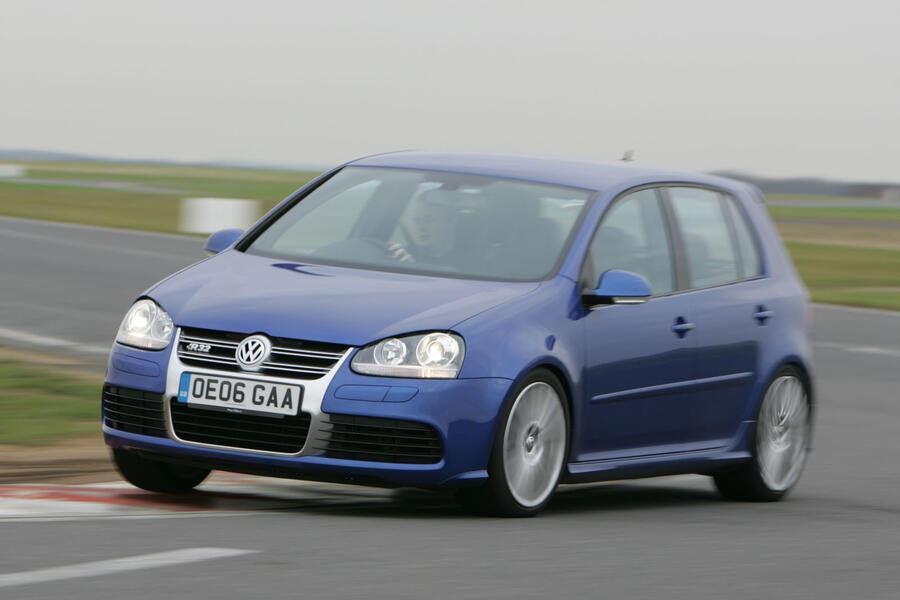
The Mk6, which arrived in 2008, was effectively a substantial facelift, using a stiffened version of the Mk5’s PQ platform, with additional refinement and on-board technology. The quickest version dropped the 3.2-litre VR6 in favour of an uprated version of the GTI’s 2.0-litre turbo four and the ‘32’ badging was dropped, so it just became the Golf R.
The Mk7 arrived in 2013, arguably marking the high point in the Golf lineage. The first car based on the now-ubiquitous MQB platform, it set a new benchmark for ergonomics and build quality, with the same dynamic polish as the two preceding generations.
“The best hatchback in the world just got better,” wrote our testers. And it seemed the public agreed, because more than six million examples of the Mk7 Golf were built – making it the best-selling generation since the Mk2.
![]()
It was a success that the Mk8 struggled to follow. Launched in November 2019, it was meant to kick-start Volkswagen’s digital revolution. Software glitches and a global pandemic meant it stalled, and a mid-life facelift was pushed into development.
That car, the ‘Mk8.5’, hits the market later this year, bringing a new-generation infotainment screen, adding long-range plug-in hybrid powertrains, and returning proper buttons to the steering wheel.
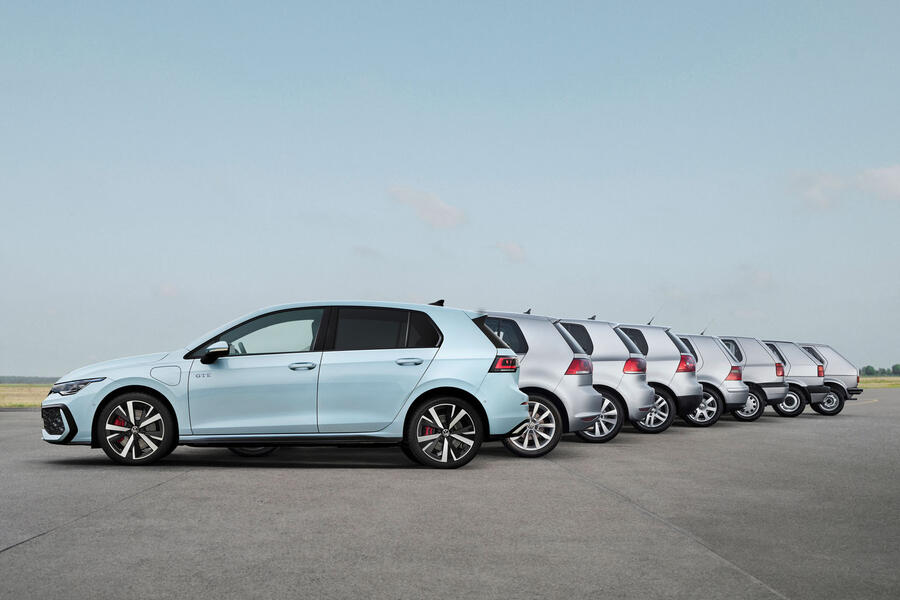
As for what’s next, the Mk9 Golf is set to be the first electric-only generation. Just as the seventh introduced the MQB architecture, the ninth Golf will be the first VW to use the advanced SSP platform when it is launched in 2028. Highlights of SSP include 800V electricals and charging rates beyond the 175kW limit of the brand’s current electric cars.

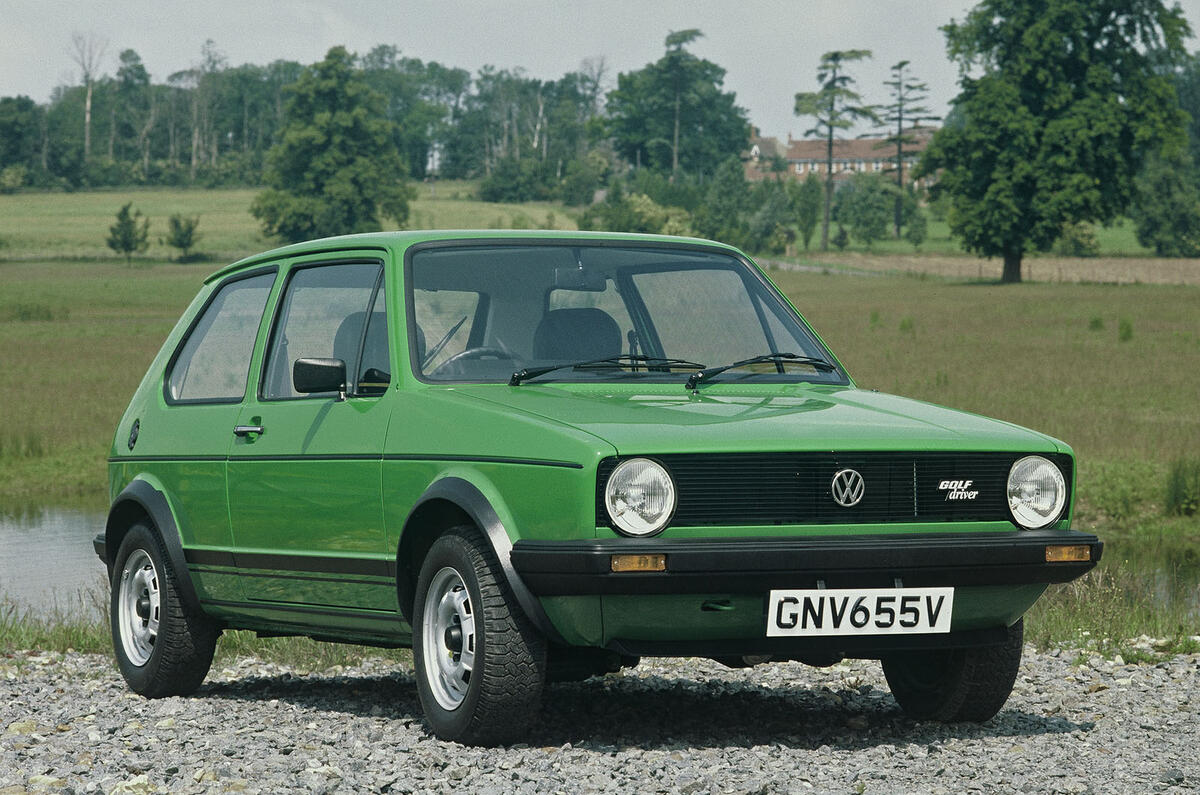
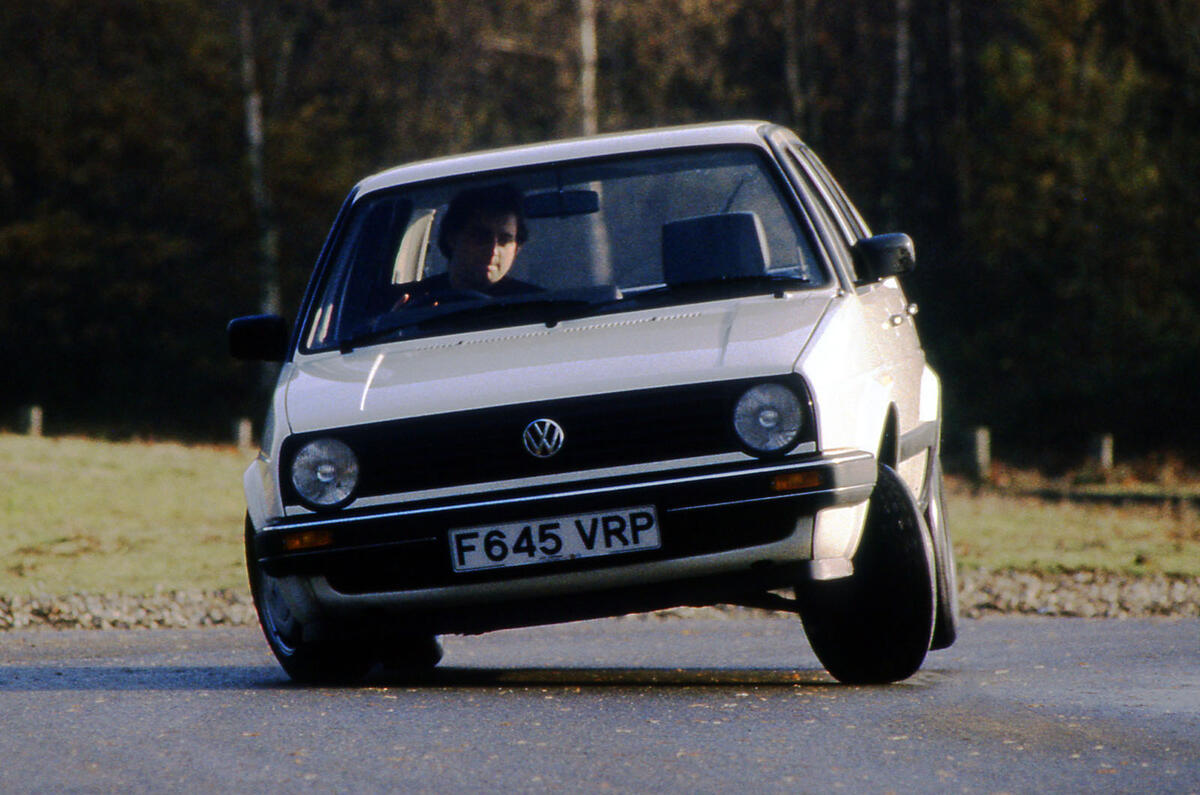
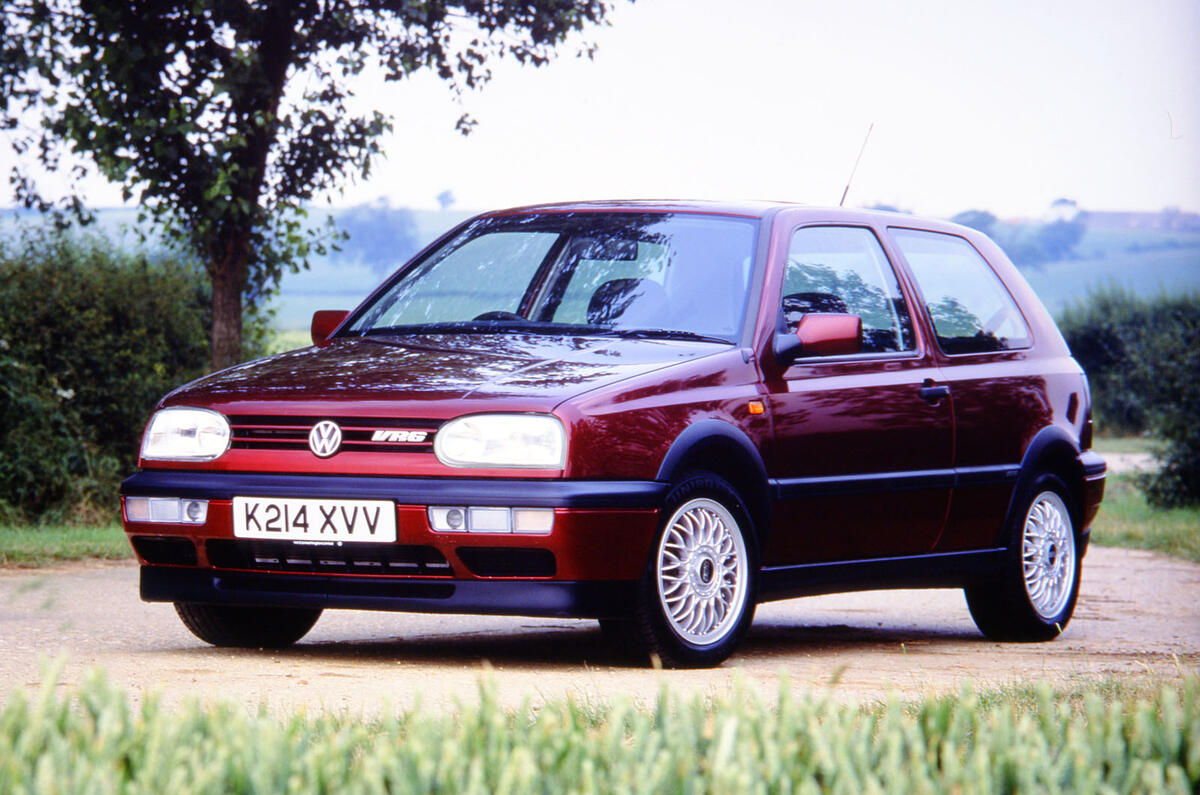
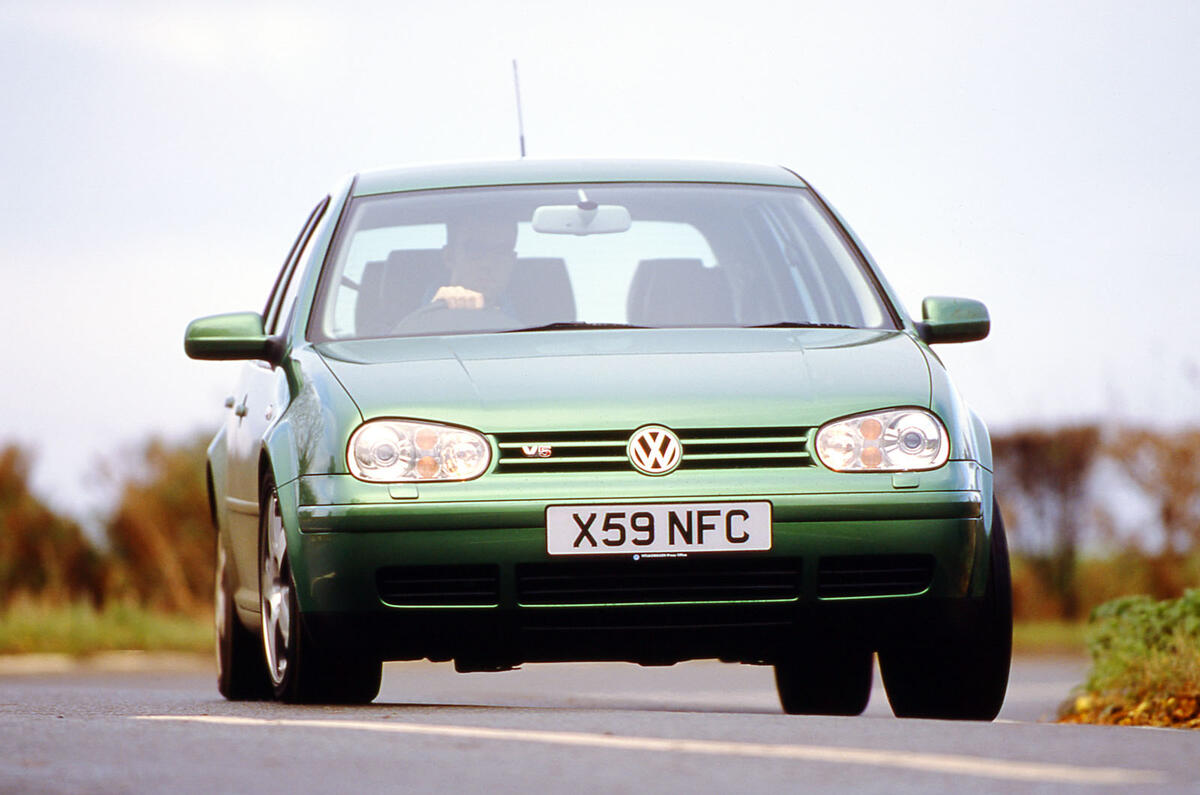
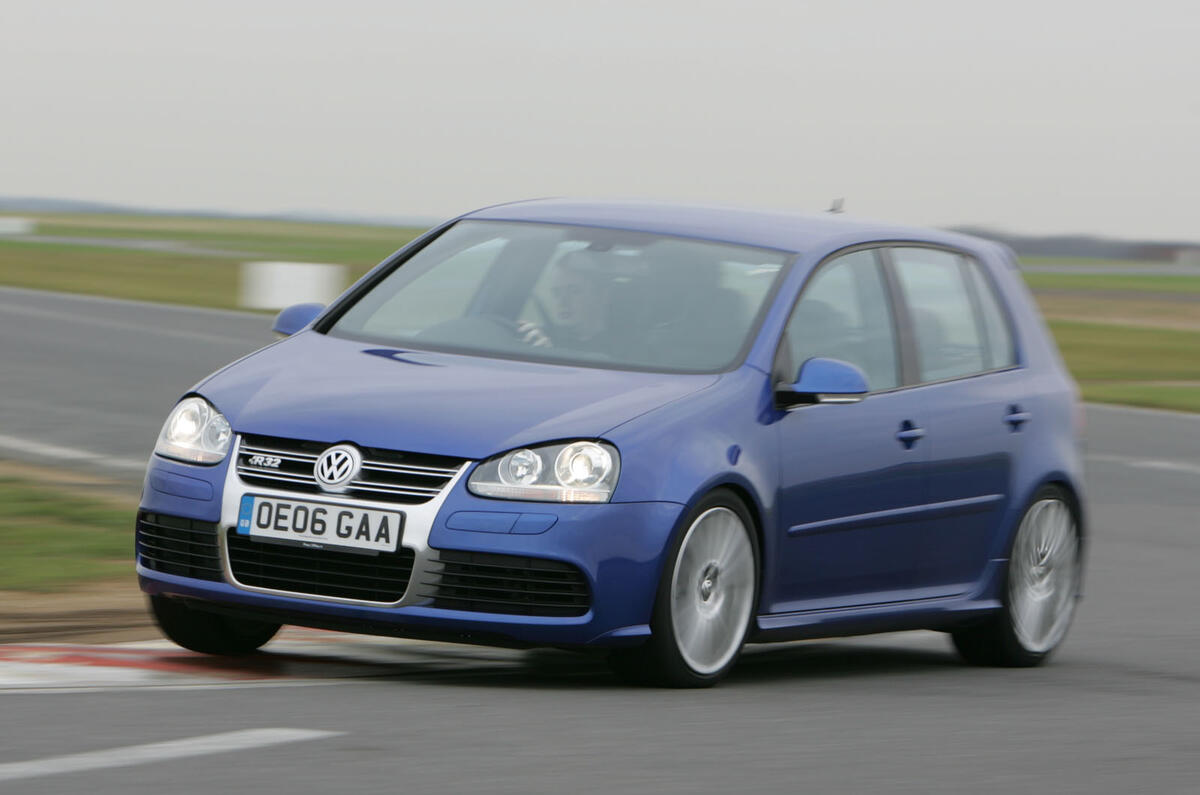
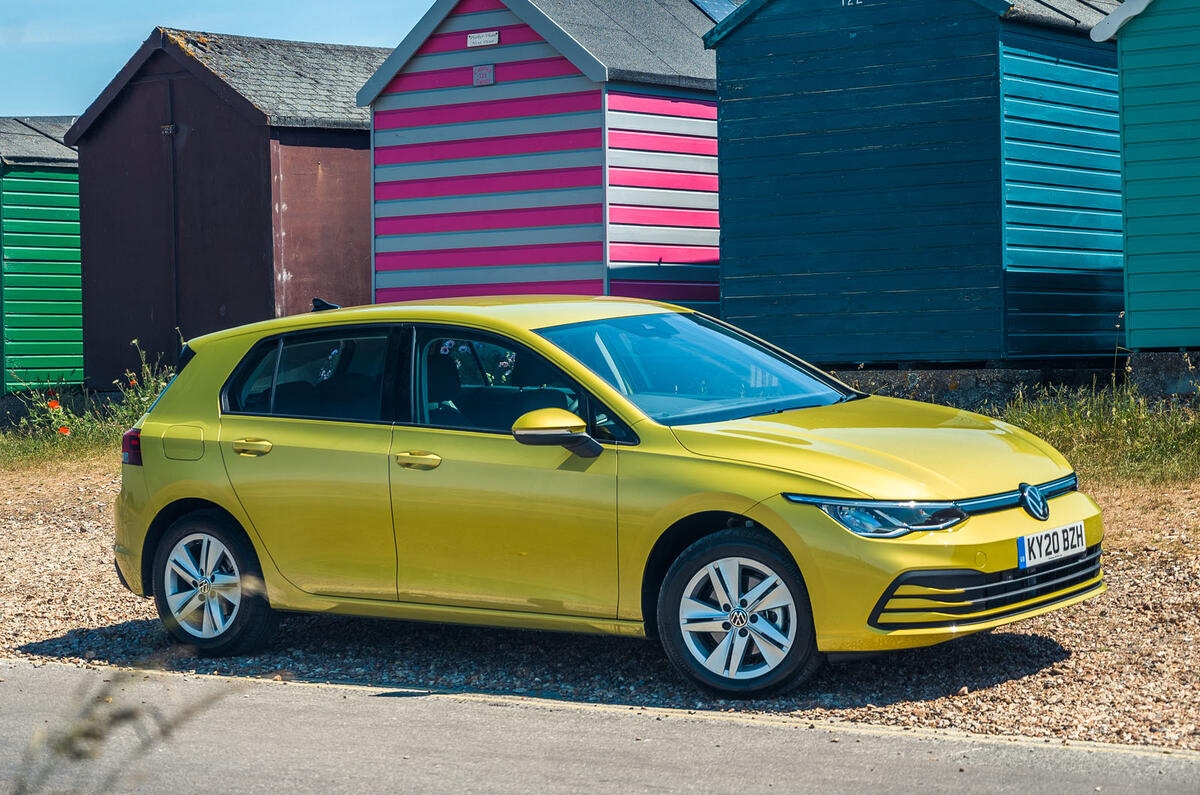
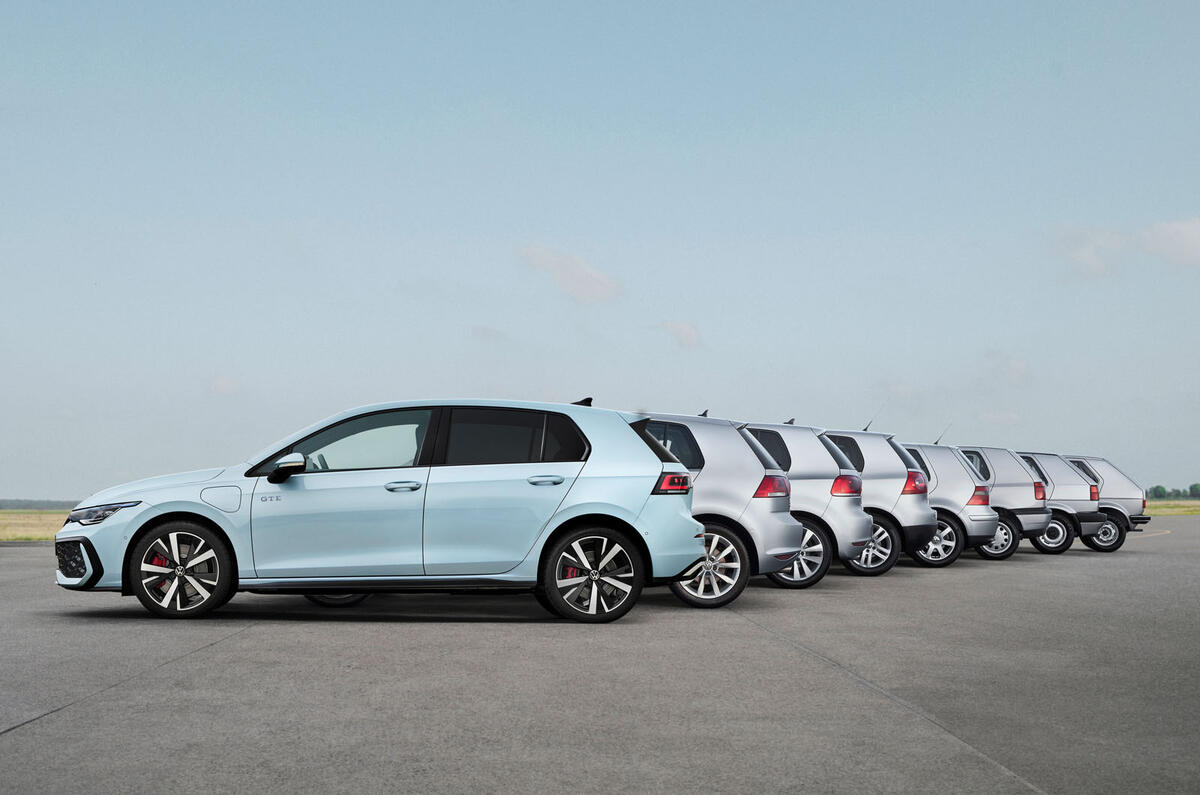
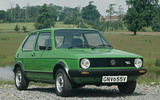
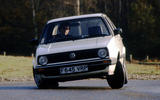
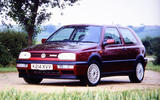
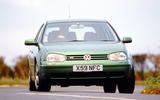
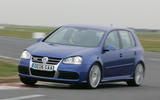
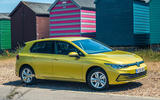
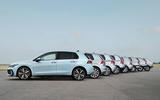





Join the debate
Add your comment
Poor VW. I bet they're wishing they'd been able to continue the Mk 7.5 for a few more years to coincide with this celebration.
Golf was a car I always wanted but could never justify the premium it commanded. Not only were the Mk1 and Mk2 priced higher than rivals, they were also less well equipped. I remember when a radio was on the options list ! it wasn't until 2007 I bought my first Golf, a MK5. It was a brilliant car tho suffered from build quality issues - rattles etc, which I didn't expect from a VW. Overall it was still one of the best cars I've owned. The Mk6 improved that but always felt it was a tad characterless. Found nothing to complain about it tho. I agree with the text, the Mk7 combined everything and IMO was the best Golf of all. That was our last Golf, the Mk8 was just pig ugly and marked a downshift in VW preceived quality. Talk about killing the goose that laid the golden egg.
The Toyota Corrola was tge Workds best selling car for a while but that does not mean its any good. It was an appliance on wheels, a dull box a bit like the Golf then. The current Corrola however is an excellent car with style unlike VW and any of there dull Golf's which has to be one of the most boring ordinary cars ever made. Another appliance on wheels that has been very popular recently is the Tesla Model Y yes Y for Yuck so at least they got the Y bit right.
So yes just because a car is popular does not mean it is any good.
What utter anti VW rubbish, since when was an Golf V5 or V6 boring and ordinary.
Still, the "dub" scene has got be an enviable image from other manufacturers perspective.
The one thing you can't really criticise VW for over the years is the ability of its marketing department. Its very adept. Take the Transporter, for example; So many people seem in awe of it, but to be honest, since it went front engined it lost its unique appeal and became just another (expensive) van.